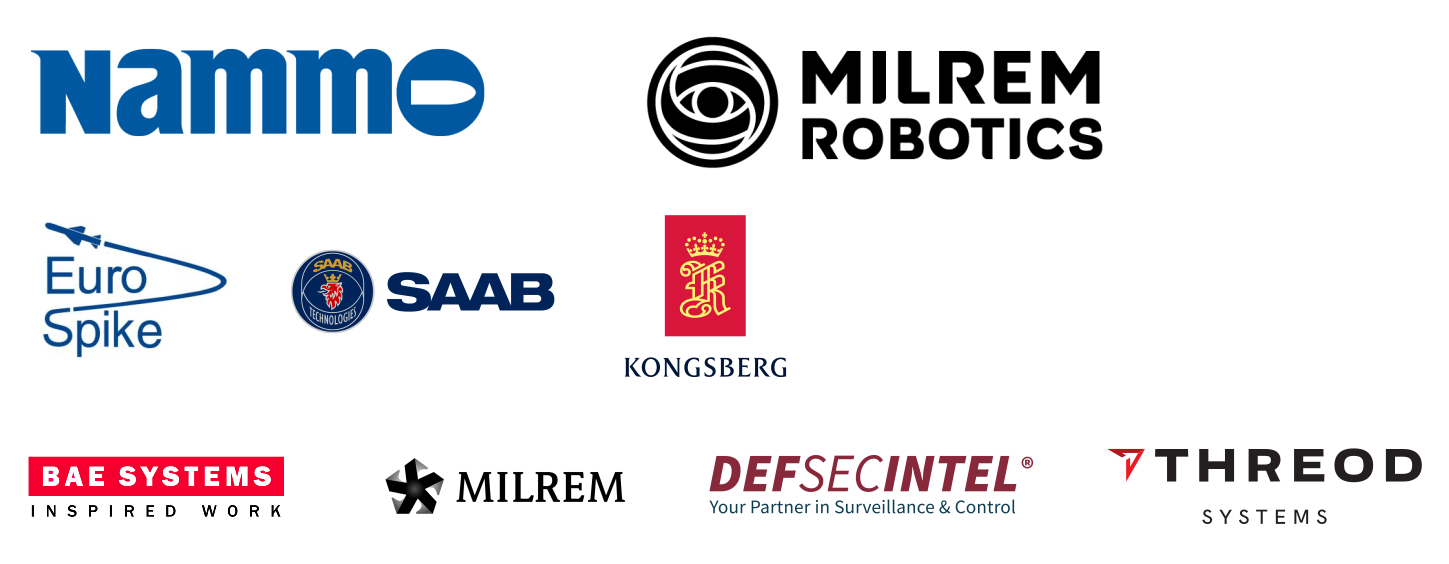ABCD 2019
Disruptive Technologies for Strategic Superiority:
Can the West Win the Defence Technology Race?
29-30 October 2019
Conference Centre of the Radisson Blu Hotel Olümpia, Tallinn, Estonia
#abcdtallinn2019
*Tentative and subject to change
Tuesday 29 October
17:00-18:30 Registration
18:30-19:30 Opening Session
Welcome by Sven Sakkov, Director of ICDS, and Jean-François Coutris, President of ASERA
Opening speech by Jüri Luik, Minister of Defence of Estonia
Keynote speech by Florence Parly, Minister of Armed Forces of France
Discussion moderated by Sven Sakkov, Director of ICDS
19:30-22:00 Welcome dinner hosted by the Estonian Ministry of Defence
Wednesday 30 October
08:00-09:00 Registration & coffee
09:00-10:00 Keynote Session
Keynote speech by H.E. Kersti Kaljulaid, President of Estonia
Conversation between H.E. Kersti Kaljulaid, President of Estonia, and Jaan Tallinn, Co-founder of the Cambridge Centre for the Study of Existential Risk and the Future of Life Institute.
Moderator: Dr Ulrike Franke, Policy Fellow, European Council on Foreign Relations (ECFR)
10:00-10:30 Coffee break
10:30-12:00 Session One: The State of Technology
What are the broad technological trends shaping states and their societies, and influencing the conduct of international relations? What is the interplay of these trends and geopolitical shifts in the global order? How are they disrupting the established paradigms of war and warfare? How will they affect national power and military alliances, especially NATO—its effectiveness, political cohesion, decision-making, interoperability and burden sharing? Is the West’s technological edge in military affairs eroding? What are the implications for deterrence in general and NATO’s deterrence function in particular?
Panellists:
Michael Carl Haas, Senior Researcher, Centre for Security Studies (CSS) / ETH Zürich
André Loesekrug-Pietri, Founding Director of the Joint European Disruptive Initiative (JEDI)
Martijn Rasser, Senior Fellow, Technology & National Security Program, Center for a New American Security (CNAS)
Tomáš Valášek, Director of Carnegie Europe
Dr Bryan Wells, NATO Chief Scientist
Moderator: Kristīne Rudzīte-Stejskala, Director of Logistics & Defence Investments Policy Department, Ministry of Defence of Latvia
12:00-13:30 Lunch
13:30-15:00 Session Two: The Case of Autonomy
What challenges to states, societies and the armed forces arise from progress in AI technologies, robotics and machine autonomy? What are the risks and opportunities for the defence sector, and how can those risks best be managed and the opportunities exploited? What are the political, societal, strategic, doctrinal and industrial implications of autonomous systems in defence? Who is ahead and who is falling behind in embracing AI- and autonomy-driven transformation in military capabilities, and why? What are NATO’s and EU’s partners and opponents doing in this field? How can small NATO Allies and EU Member States leverage these technologies in their security and defence policies and strategies?
Panellists:
Dr Ulrike Franke, Policy Fellow, European Council on Foreign Relations (ECFR)
Dr Michaël Krajecki, Director of Artificial Intelligence Project, Defence Innovation Agency, Ministry of Armed Forces of France
Dr Mart Noorma, Science and Development Director, Milrem Robotics
LtGen Sławomir Wojciechowski (PhD), Commander of Multinational Corps Northeast (MNC NE)
Moderator: Dr Daniel Fiott, Security & Defence Editor, EU Institute for Security Studies (EUISS)
15:00-15:30 Coffee break
15:30-16:00 Keynote Session
Introduction by Kadi Silde, Undersecretary for Defence Policy, Ministry of Defence of Estonia
Keynote speech by Hon John C. Rood, Under Secretary of Defense for Policy, US Department of Defense
16:00-17:40 Session Three: The Place of Europe
Can Europe become a hot-bed of technological innovation in defence? What can be the main drivers of its ambition as a technological power? What are the main obstacles and constraints, and how can they be mitigated or removed? How can the societal and political concerns in Europe over exploitation of AI, machine learning and autonomous technologies for military purposes be assuaged? Will the new initiatives and mechanisms in European defence cooperation help in acquiring a leading edge in key disruptive technologies? What more has to be done to future-proof Europe’s defence industrial and technological base, and its military capabilities? Do countries such as the Baltic states have a role to play in this?
Panellists:
Dr Andrea Gilli, Senior Researcher, Research Division, NATO Defence College
Giedrimas Jeglinskas, NATO Assistant Secretary General
Sylvia Kainz-Huber, Head of Unit Defence 2, DG GROW, European Commission
Janne Kuusela, Director-General of Defence Policy Department, Ministry of Defence of Finland
Olli Ruutu, Deputy Chief Executive of the European Defence Agency (EDA)
Moderator: Jean-Charles Boulat, Chairman of Economic, Legal and Trade Commission (ELT) of AeroSpace and Defence Industries Association of Europe & Board Member of ASERA
17:40-18:00 Closing Session
Concluding remarks by Kristjan Prikk, Permanent Secretary, Ministry of Defence of Estonia
ORGANISER
SUPPORTED BY



